2 feb 2017
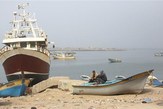
Israeli forces opened live fire at Palestinian fishing boats off the coast of northern Gaza for the second time on Thursday.
Head of the fishermen union, Zakariya Bakr told Ma’an that Israeli naval ships opened fire at Palestinian fishing boats off the coast of northern Gaza City. No injuries were reported.
Israeli naval boats had also opened fire at fishermen of the coast of Beit Lahiya on Thursday morning, while Israeli forces opened fire at Palestinian farmers in the eastern Gaza Strip.
An Israeli army spokesperson told Ma’an she would look into reports on the incident.
Israeli army incursions inside the Palestinian territory have long been a near-daily occurrence, as the Israeli army regularly opens fire on unarmed Palestinian fishermen and farmers along the border areas if they approach Israel’s unilaterally declared “buffer zone,” which lies on both the land and sea sides of Gaza.
The practice has in effect destroyed much of the agricultural and fishing sector of the blockaded coastal enclave.
Head of the fishermen union, Zakariya Bakr told Ma’an that Israeli naval ships opened fire at Palestinian fishing boats off the coast of northern Gaza City. No injuries were reported.
Israeli naval boats had also opened fire at fishermen of the coast of Beit Lahiya on Thursday morning, while Israeli forces opened fire at Palestinian farmers in the eastern Gaza Strip.
An Israeli army spokesperson told Ma’an she would look into reports on the incident.
Israeli army incursions inside the Palestinian territory have long been a near-daily occurrence, as the Israeli army regularly opens fire on unarmed Palestinian fishermen and farmers along the border areas if they approach Israel’s unilaterally declared “buffer zone,” which lies on both the land and sea sides of Gaza.
The practice has in effect destroyed much of the agricultural and fishing sector of the blockaded coastal enclave.
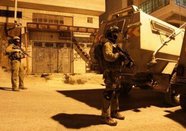
Israeli forces opened live fire at Palestinian lands east of Gaza city, while Israeli naval forces also opened fire on fishermen off the coast of Beit Lahiya in the northern part of the besieged enclave on Thursday morning.
Witnesses told Ma’an that Israeli forces stationed behind the border fence between Gaza and Israel opened live fire at Palestinian farmers. No injuries were reported.
Witnesses also told Ma’an that Israeli forces opened live fire at fishermen off the coast of Beit Lahiya, without any injuries being reported.
An Israeli army spokesperson told Ma’an she would look into reports.
Israeli army incursions inside the Palestinian territory have long been a near-daily occurrence, as the Israeli army regularly opens fire on unarmed Palestinian fishermen and farmers along the border areas if they approach Israel’s unilaterally declared “buffer zone,” which lies on both the land and sea sides of Gaza.
The practice has in effect destroyed much of the agricultural and fishing sector of the blockaded coastal enclave.
Witnesses told Ma’an that Israeli forces stationed behind the border fence between Gaza and Israel opened live fire at Palestinian farmers. No injuries were reported.
Witnesses also told Ma’an that Israeli forces opened live fire at fishermen off the coast of Beit Lahiya, without any injuries being reported.
An Israeli army spokesperson told Ma’an she would look into reports.
Israeli army incursions inside the Palestinian territory have long been a near-daily occurrence, as the Israeli army regularly opens fire on unarmed Palestinian fishermen and farmers along the border areas if they approach Israel’s unilaterally declared “buffer zone,” which lies on both the land and sea sides of Gaza.
The practice has in effect destroyed much of the agricultural and fishing sector of the blockaded coastal enclave.
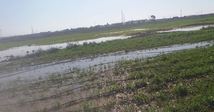
The Israeli forces opened Thursday morning water dams near Sheja'eya neighborhood, flooding Palestinian border agricultural lands.
The PIC reporter quoted eyewitnesses as saying that Israeli forces opened the border water dams which led to drowning the neighbouring crops.
Gaza border areas have long been a near-daily target to Israeli forces, as unarmed Palestinian farmers and agricultural lands have been regularly attacked by Israeli gunfire.
Such attacks in effect destroyed much of the agricultural sector of the blockaded coastal enclave, leaving dozens of residents homeless.
The PIC reporter quoted eyewitnesses as saying that Israeli forces opened the border water dams which led to drowning the neighbouring crops.
Gaza border areas have long been a near-daily target to Israeli forces, as unarmed Palestinian farmers and agricultural lands have been regularly attacked by Israeli gunfire.
Such attacks in effect destroyed much of the agricultural sector of the blockaded coastal enclave, leaving dozens of residents homeless.
31 jan 2017
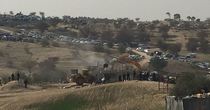
Israeli forces opened fire towards Palestinian fishermen and farmers in the southern Gaza Strip on Tuesday morning, locals told Ma’an.
Witnesses said that Israeli military vehicles stationed near the Sufa military post fired towards Palestinian farmers tending their crops between the cities of Khan Yunis and Rafah.
No injuries were reported.
Meanwhile, Israeli navy ships fired in the direction of Gazan fishermen off the coast of Rafah, forcing them to sail back to shore.
An Israeli army spokesperson told Ma’an that they were looking into the reports.
Israeli army incursions inside the Palestinian territory have long been a near-daily occurrence, as the Israeli army regularly opens fire on unarmed Palestinian fishermen and farmers along the border areas if they approach Israel’s unilaterally declared “buffer zone,” which lies on both the land and sea sides of Gaza.
Gazan fishermen, whose numbers are estimated to be around 4,000, have suffered from the near decade-long siege of the Gaza Strip, which limits their fishing to just six nautical miles into the sea in accordance with the ceasefire agreement signed with Palestinian factions in 2014.
Earlier this month, a Palestinian fisherman went missing after an encounter with Israeli forces off the coast of Gaza, with his family announcing his death days later despite his body having yet to be recovered.
Meanwhile last week, Israeli aircraft flew the Palestinian side of the “buffer zone" on the outskirts of the Khan Yunis, spraying Palestinian farmlands with weed killers.
Agronomist Wael Thabet of the Gaza Ministry of Agriculture told Ma’an that the excess spray can travel up to 1,200 meters through the air away from the buffer zone, burning crops and causing farmers huge economic losses. He added that the farmlands near the border area constitute about one third of the agricultural space in the besieged coastal enclave.
Witnesses said that Israeli military vehicles stationed near the Sufa military post fired towards Palestinian farmers tending their crops between the cities of Khan Yunis and Rafah.
No injuries were reported.
Meanwhile, Israeli navy ships fired in the direction of Gazan fishermen off the coast of Rafah, forcing them to sail back to shore.
An Israeli army spokesperson told Ma’an that they were looking into the reports.
Israeli army incursions inside the Palestinian territory have long been a near-daily occurrence, as the Israeli army regularly opens fire on unarmed Palestinian fishermen and farmers along the border areas if they approach Israel’s unilaterally declared “buffer zone,” which lies on both the land and sea sides of Gaza.
Gazan fishermen, whose numbers are estimated to be around 4,000, have suffered from the near decade-long siege of the Gaza Strip, which limits their fishing to just six nautical miles into the sea in accordance with the ceasefire agreement signed with Palestinian factions in 2014.
Earlier this month, a Palestinian fisherman went missing after an encounter with Israeli forces off the coast of Gaza, with his family announcing his death days later despite his body having yet to be recovered.
Meanwhile last week, Israeli aircraft flew the Palestinian side of the “buffer zone" on the outskirts of the Khan Yunis, spraying Palestinian farmlands with weed killers.
Agronomist Wael Thabet of the Gaza Ministry of Agriculture told Ma’an that the excess spray can travel up to 1,200 meters through the air away from the buffer zone, burning crops and causing farmers huge economic losses. He added that the farmlands near the border area constitute about one third of the agricultural space in the besieged coastal enclave.
30 jan 2017
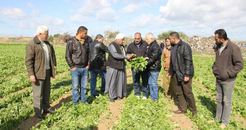
Officials at the Ministry of Agriculture visited the farming lands near the borders between Gaza and 1948 occupied Palestine to inspect the damage caused by Israeli pesticides sprayed by planes.
Mohammad Jadallah, Ministry of Agriculture undersecretary, who led the visiting officials, stressed that the Ministry is paying special attention to the border area due to its richness and diversity. Furthermore, it is considered the food basket of the Gaza Strip, he added.
Israeli planes sprayed pesticides last week on agricultural lands belonging to Palestinian citizens in the eastern areas of the southern and central provinces.
Farmers in those areas have been suffering big losses due to the Israeli measure of spraying pesticides on crops along the borders, Jadallah pointed out.
He urged the international concerned organizations to take the necessary procedures to stop the harmful Israeli practices against the agricultural and environmental sectors in Gaza.
Mohammad Jadallah, Ministry of Agriculture undersecretary, who led the visiting officials, stressed that the Ministry is paying special attention to the border area due to its richness and diversity. Furthermore, it is considered the food basket of the Gaza Strip, he added.
Israeli planes sprayed pesticides last week on agricultural lands belonging to Palestinian citizens in the eastern areas of the southern and central provinces.
Farmers in those areas have been suffering big losses due to the Israeli measure of spraying pesticides on crops along the borders, Jadallah pointed out.
He urged the international concerned organizations to take the necessary procedures to stop the harmful Israeli practices against the agricultural and environmental sectors in Gaza.
29 jan 2017
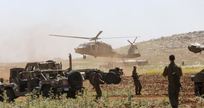
The Israeli army started on Sunday large-scale military drills along the border of Gaza Strip.
Radio Israel quoted the spokesman of the Israeli army as saying that the exercises, which will last until Thursday, fall in line with the annual military drills to maintain the efficiency and readiness of the Israeli forces.
Radio Israel quoted the spokesman of the Israeli army as saying that the exercises, which will last until Thursday, fall in line with the annual military drills to maintain the efficiency and readiness of the Israeli forces.
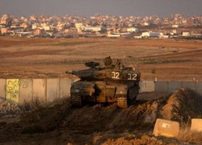
Israeli soldiers, stationed across the border fence, fired many live rounds at Palestinian homes, property, and farmlands, east of Gaza city, causing excessive damage.
The WAFA Palestinian News Agency said the soldiers, stationed on towers in the Nahal Oz military base, fired dozens of rounds at homes and lands, east of the Sheja’eyya neighborhood, causing serious damage.
The attack also forced Palestinian farmers and workers, out of their lands, especially in areas close to the border fence.
The WAFA Palestinian News Agency said the soldiers, stationed on towers in the Nahal Oz military base, fired dozens of rounds at homes and lands, east of the Sheja’eyya neighborhood, causing serious damage.
The attack also forced Palestinian farmers and workers, out of their lands, especially in areas close to the border fence.
28 jan 2017
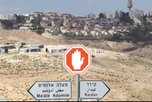
Hani Swairki, 2, stands at the entrance to the trailer where his infant brother, Mohammad, died from cold exposure.
A newborn died in freezing conditions, in Gaza on January 8, as he slept in a trailer temporarily sheltering his family, after their home was destroyed during Israel’s 2014 offensive.
According to the coroner, the boy, Mohammad Swairki, died after his blood circulation and breathing stopped, due to the cold.
Mohammad was born just 13 days before, on December 26, 2016. His mother, Dalal, told Defense for Children International – Palestine that, on the evening of January 7, Mohammad refused to breastfeed. Dalal decided to wait until morning to take him to hospital and tried to keep him warm inside the poorly insulated trailer.
“I kept waking him up that night, to breastfeed him, but he kept refusing,” she said. “It was freezing that night. Then, he did not wake up and stopped moving at around 6:00 in the morning. It is all because of the cold, and because of living in the trailer.”
Unable to rouse the infant, Dalal’s husband took Mohammad to the hospital. “He returned shortly after that and told me that Mohammad had died because he did not eat because of the cold,” Dalal said.
Dalal and her husband had lived at a house in Juhr al-Deek, in central Gaza, until they were forced to evacuate, after Israel launched Operation Protective Edge, a fifty-day military offensive on Gaza between July 8 and August 26, 2014. Dalal gave birth to her first child, Hani, during the final days of the operation.
When they returned to Juhr al-Deek, they found their home had been destroyed. The Ministry of Labour provided the family with a small metal trailer, measuring around 11.5 by 20 feet.
“Then winter came, and the trailer became a refrigerator,” said Dalal. “It became very cold, and water leaked from the ceiling, so we had to cover the rooftop with plastic sheet to stop water from coming in, but that did not stop the cold.”
Operation Protective Edge left at least 2,200 Palestinians dead, including at least 1,492 civilians, according to OCHA. DCIP independently verified the deaths of 547 children killed during the offensive, 535 of them as a direct result of Israeli attacks. Almost 68 percent of the children killed by Israeli forces were 12 years old or younger.
Two and a half years on, the devastation caused by the offensive continues to impact the lives of approximately 2 million Palestinians living in the tiny 141-square-mile coastal enclave. The blockade has slowed reconstruction to damaged infrastructure and prolonged the plight of an estimated half a million Gazans displaced at the peak of the bombing campaign, which destroyed 20,000 homes.
More than 1,000 children suffered injuries, rendering them permanently disabled, according to OCHA.
“This tragedy reminds us of the humanitarian crisis that Gazans are enduring, following Israel’s 2014 offensive,” said Ayed Abu Eqtaish, Accountability Program director at DCIP. “Despite the continued suffering of Gazans and overwhelming evidence of war crimes by Israeli forces during the offensive, justice and accountability remain elusive.”
Search IMEMC: “DCIP”
A newborn died in freezing conditions, in Gaza on January 8, as he slept in a trailer temporarily sheltering his family, after their home was destroyed during Israel’s 2014 offensive.
According to the coroner, the boy, Mohammad Swairki, died after his blood circulation and breathing stopped, due to the cold.
Mohammad was born just 13 days before, on December 26, 2016. His mother, Dalal, told Defense for Children International – Palestine that, on the evening of January 7, Mohammad refused to breastfeed. Dalal decided to wait until morning to take him to hospital and tried to keep him warm inside the poorly insulated trailer.
“I kept waking him up that night, to breastfeed him, but he kept refusing,” she said. “It was freezing that night. Then, he did not wake up and stopped moving at around 6:00 in the morning. It is all because of the cold, and because of living in the trailer.”
Unable to rouse the infant, Dalal’s husband took Mohammad to the hospital. “He returned shortly after that and told me that Mohammad had died because he did not eat because of the cold,” Dalal said.
Dalal and her husband had lived at a house in Juhr al-Deek, in central Gaza, until they were forced to evacuate, after Israel launched Operation Protective Edge, a fifty-day military offensive on Gaza between July 8 and August 26, 2014. Dalal gave birth to her first child, Hani, during the final days of the operation.
When they returned to Juhr al-Deek, they found their home had been destroyed. The Ministry of Labour provided the family with a small metal trailer, measuring around 11.5 by 20 feet.
“Then winter came, and the trailer became a refrigerator,” said Dalal. “It became very cold, and water leaked from the ceiling, so we had to cover the rooftop with plastic sheet to stop water from coming in, but that did not stop the cold.”
Operation Protective Edge left at least 2,200 Palestinians dead, including at least 1,492 civilians, according to OCHA. DCIP independently verified the deaths of 547 children killed during the offensive, 535 of them as a direct result of Israeli attacks. Almost 68 percent of the children killed by Israeli forces were 12 years old or younger.
Two and a half years on, the devastation caused by the offensive continues to impact the lives of approximately 2 million Palestinians living in the tiny 141-square-mile coastal enclave. The blockade has slowed reconstruction to damaged infrastructure and prolonged the plight of an estimated half a million Gazans displaced at the peak of the bombing campaign, which destroyed 20,000 homes.
More than 1,000 children suffered injuries, rendering them permanently disabled, according to OCHA.
“This tragedy reminds us of the humanitarian crisis that Gazans are enduring, following Israel’s 2014 offensive,” said Ayed Abu Eqtaish, Accountability Program director at DCIP. “Despite the continued suffering of Gazans and overwhelming evidence of war crimes by Israeli forces during the offensive, justice and accountability remain elusive.”
Search IMEMC: “DCIP”
26 jan 2017
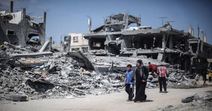
The European-Palestinian relations council welcomed a resolution made by a The Council of Europe’s Parliamentary Assembly accusing Israel of engaging in systematic unlawful killings of Palestinian civilians in Gaza Strip over the past several years, and of exacerbating a humanitarian crisis in the blockaded Palestinian enclave.
The Council of Europe’s Parliamentary Assembly, also known as PACE, voted on Tuesday in favor of a resolution, based on a report on the humanitarian situation in the besieged enclave, which charges Israel with excessive and intentional force without justification against Palestinian civilians in Gaza.
The report states that “Cases of the deliberate fatal shooting of individuals who posed no imminent danger to life amounts to an appalling pattern of apparently systematic unlawful killings”. It was presented on January 4 to the assembly and made up of 324 parliamentarians from 47 countries.
The council said that the report called on European Union countries to exert efforts for opening an official investigation at the International Criminal Court in case of the existence of reasonable evidences.
The council asked the international community and states of the European Union to carry on hard work for holding war criminals accountable as well as for ending the Israeli ceaseless siege on Gaza.
The Council of Europe’s Parliamentary Assembly, also known as PACE, voted on Tuesday in favor of a resolution, based on a report on the humanitarian situation in the besieged enclave, which charges Israel with excessive and intentional force without justification against Palestinian civilians in Gaza.
The report states that “Cases of the deliberate fatal shooting of individuals who posed no imminent danger to life amounts to an appalling pattern of apparently systematic unlawful killings”. It was presented on January 4 to the assembly and made up of 324 parliamentarians from 47 countries.
The council said that the report called on European Union countries to exert efforts for opening an official investigation at the International Criminal Court in case of the existence of reasonable evidences.
The council asked the international community and states of the European Union to carry on hard work for holding war criminals accountable as well as for ending the Israeli ceaseless siege on Gaza.

Israeli army bulldozers early on Thursday launched a limited incursion into eastern al-Qarara town, in southern Gaza Strip.
Speaking with PIC, local sources said four Israeli army bulldozers deployed at the Israeli Kissufim military base raked through Palestinian lands in eastern al-Qarara, to the northeast of Khan Younis province, near the borderline.
A flock of military tanks and jeeps escorted the bulldozers all the way through the infiltration, at the same time as Israeli drones kept hovering over the territory.
A heavy damage has often been inflicted by such arbitrary incursions by the Israeli occupation army on Palestinian cultivated land tracts near the border fence.
Speaking with PIC, local sources said four Israeli army bulldozers deployed at the Israeli Kissufim military base raked through Palestinian lands in eastern al-Qarara, to the northeast of Khan Younis province, near the borderline.
A flock of military tanks and jeeps escorted the bulldozers all the way through the infiltration, at the same time as Israeli drones kept hovering over the territory.
A heavy damage has often been inflicted by such arbitrary incursions by the Israeli occupation army on Palestinian cultivated land tracts near the border fence.
Truce violations List of names Pictures of martyrs
Days: Aug: 26 - 25 - 24 - 23 - 22 - 21 - 20 - 19 - 18 - 17 - 16 - 15 - 14 - 13 - 12 - 11 - 10 - 9 - 8 - 7 - 6 - 5 - 4 - 3 - 2 - 1
July: 31 - 30 - 29 - 28 - 27 - 26 - 25 - 24 - 23 - 22 - 21 - 20 - 19 - 18 - 17 - 16 - 15 - 14 - 13 - 12 - 11 - 10 - 9 - 8
